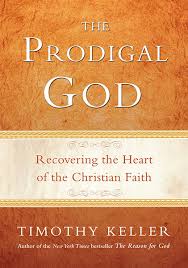c

TITLE: The Prodigal God: Recovering the Heart of the Christian Faith
AUTHOR: TIM KELLER
PUBLISHER: New York, NY: Dutton Press, 2008, (144 pages).
"Jesus uses the younger and elder brothers to portray the two basic ways people try to find happiness and fulfillment: the way of moral conformity and the way of self-discovery. Each acts as a lens coloring how you see all of life, or as a paradigm shaping your understanding of everything. Each is a way of finding personal significance and worth, of addressing the ills of the world, and of determining right from wrong.
The elder brother in the parable illustrates the way of moral conformity. The Pharisees of Jesus’s day believed that, while they were a people chosen by God, they could only maintain their place in his blessing and receive salvation through strict obedience to the Bible. There are innumerable varieties of this paradigm, but they all believe in putting the will of God and the standards of the community ahead of individual fulfillment. In this view, we only attain happiness and a world made right by achieving moral rectitude. We may fall at times, of course, but then we will be judged by how abject and intense our regret is. In this view, even in our failures we must always measure up.
The younger brother in the parable illustrates the way of self-discovery. In ancient patriarchal cultures some took this route, but there are far more who do so today. This paradigm holds that individuals must be free to pursue their own goals and self-actualization regardless of custom and convention. In this view, the world would be a far better place if tradition, prejudice, hierarchical authority, and other barriers to personal freedom were weakened or removed.
These two ways of life (and their inevitable clash) are vividly depicted in the classic movie Witness. In that story, the young Amish widow Rachel falls in love with the decidedly non-Amish policeman, John Book. Her father-in-law, Eli, warns her that it is forbidden to do so and that the elders could have her punished. He adds that she is acting like a child. 'I will be a judge of that,' she retorts. 'No, they will be the judge of that. And so will I . . . if you shame me,' he says, fierce as a prophet. 'You shame yourself,' Rachel replies, shaken but proud, and turns away from him." (29-30)
No comments:
Post a Comment